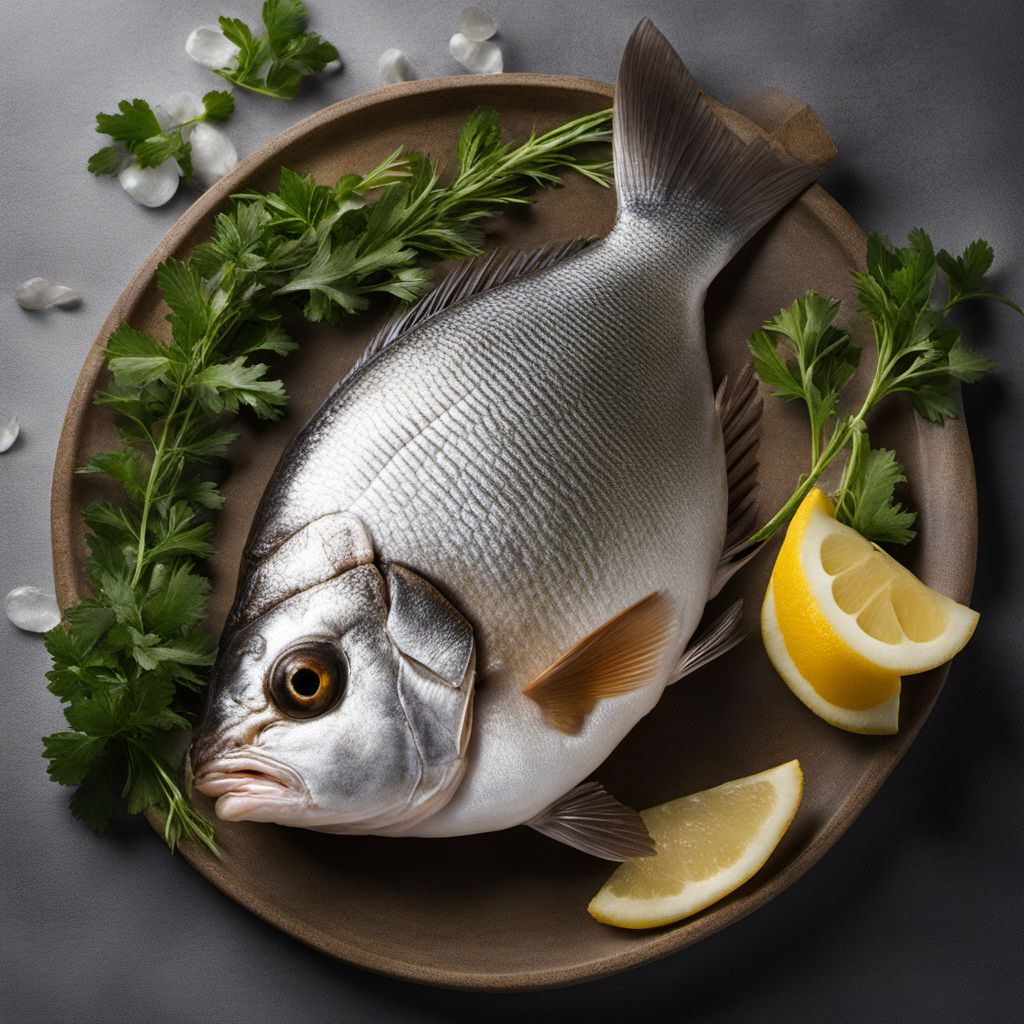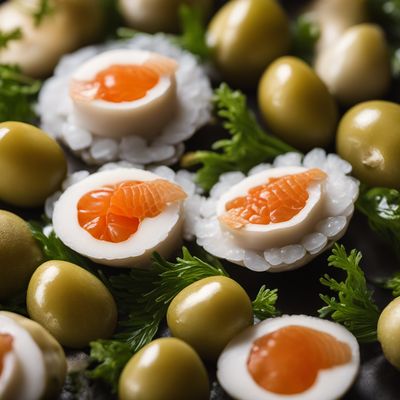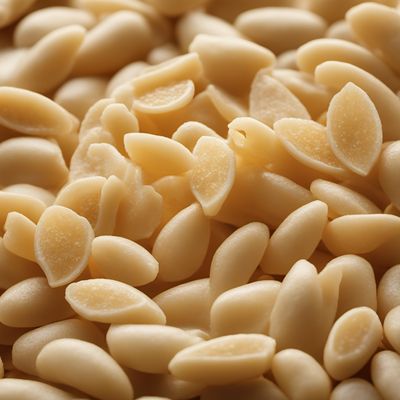
Ingredient
Bream, silver
Silvery Delight
Silver bream is a medium-sized fish with a slender body and silvery scales. Its flesh is white, tender, and flaky, with a mild and slightly sweet flavor. The delicate texture of silver bream makes it suitable for various cooking methods, including grilling, baking, frying, and steaming. It is often featured in Mediterranean and European cuisines, where it is prized for its taste and versatility.
Origins and history
Silver bream is native to Europe and can be found in freshwater bodies such as lakes, rivers, and reservoirs. It is particularly abundant in the Mediterranean region. Throughout history, silver bream has been a popular food fish in European countries, where it has been enjoyed for centuries. Today, it is still highly regarded in Mediterranean and European cuisines, where it is prepared in a variety of traditional and contemporary dishes.
Nutritional information
Silver bream is a lean source of protein and provides essential nutrients such as omega-3 fatty acids, vitamins, and minerals. It is relatively low in calories and fat, making it a healthy choice for those seeking a nutritious and flavorful seafood option.
Allergens
May contain allergens such as fish.
How to select
When selecting silver bream, look for fish with clear, bright eyes, shiny scales, and a fresh, mild aroma. The flesh should be firm and resilient to the touch. Avoid fish with dull eyes, discolored flesh, or a strong fishy smell. If purchasing fillets, ensure they are moist, without any signs of drying or discoloration.
Storage recommendations
To maintain the freshness of silver bream, store it in the refrigerator on ice or in a sealed container. Use within a day or two for optimal flavor and quality. If freezing, wrap the fish tightly in plastic wrap or place it in a freezer bag, removing as much air as possible. Consume within 3 months for the best results.
How to produce
Silver bream can be produced through aquaculture or caught in the wild. To produce silver bream through aquaculture, one would need access to suitable freshwater facilities, knowledge of fish farming techniques, and the necessary permits and equipment. In the wild, silver bream can be caught using various fishing methods, such as angling or netting, depending on local regulations and practices.
Preparation tips
Silver bream can be prepared in numerous ways, depending on personal preference and the desired outcome. It can be grilled, baked, fried, or steamed. Whole silver bream can be stuffed with herbs, citrus, or other aromatics to enhance the flavor. Fillets can be marinated, coated in breadcrumbs, or served with a sauce. Silver bream pairs well with Mediterranean flavors like lemon, garlic, olive oil, and fresh herbs.
Substitutions
Sea bream, porgy, or snapper can be used as substitutes for silver bream in certain recipes. However, each fish has its unique flavor and texture, so the substitution may alter the overall taste of the dish.
Culinary uses
Silver bream is commonly used in Mediterranean and European cuisines. It can be grilled and served with a squeeze of lemon and a drizzle of olive oil, baked with herbs and vegetables, fried and served with a side of tartar sauce, or steamed and served with a delicate sauce. It is also a popular choice for fish stews, soups, and seafood paellas.
Availability
Silver bream is commonly available in Europe, particularly in Mediterranean countries. It can also be found in some specialty seafood markets or fishmongers in other parts of the world.
More ingredients from this category » Browse all

Weakfishes
The Delicate Delights of Weakfish: Exploring the Subtle Flavors of This Ocean Gem

Japanese seabass
The Delicate Beauty of Japanese Seabass

Bombay-duck
The Delicacy of the Arabian Sea

Snappers
The Irresistible Crunch of Snappers

Salema
The Versatile Salema

Lesser sand eel
Exploring the Delicate Flavor of Lesser Sand Eel

Groupers
The Mighty Groupers: A Seafood Delicacy

Bogue
The Versatile Bogue: A Hidden Gem of the Sea

Large yellow croaker
Golden Delicacy from the Sea

Red drum
The Southern Symphony

Sea bream
Delicate Ocean Gem

Pacific sandlance
Ocean's Nutrient-Rich Gem